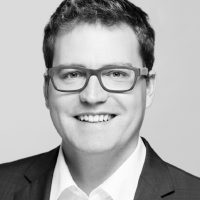Tobias Bunde was a DAAD/AGI Research Fellow in 2013. He is a researcher with the Centre for International Security Policy (CISP) at the Hertie School of Governance in Berlin. Since 2009, he has served as a policy advisor to Ambassador Wolfgang Ischinger, the chairman of the Munich Security Conference (MSC), since 2014 as Head of Policy & Analysis. During his DAAD/AGI Fellowship in October and November 2013 while being a PhD candidate at the Berlin Graduate School for Transnational Studies, Tobias conducted interviews for his dissertation on the North Atlantic Treaty Organization’s (NATO). His dissertation, supervised by Prof. Dr. Thomas Risse and Prof. Dr. Wolfgang Seibel, asked how different interpretations of NATO’s “collective identity” affected the patterns of conflict and cooperation among NATO member states.
In addition to a PhD in Political Science from Freie Universität Berlin, Mr. Bunde holds a joint Master’s degree in International Relations from Freie Universität Berlin, Humboldt Universität, and Universität Potsdam. He also studied at Technische Universität Dresden, the Institut d’Etudes Politiques in Strasbourg, and George Washington University. Before entering his PhD program, Mr. Bunde was an associate member of the research group “Konfliktgeneratoren” within the Center of Excellence “Cultural Foundations of Social Integration” at Universität Konstanz as well as a research fellow with the Berlin-based think tank Stiftung Neue Verantwortung, where he worked on German foreign policy.
He has conducted research and published on German foreign and security policy, NATO, liberal order building, and the politics of international law. His work has appeared in journals such as Contemporary Security Policy, Sicherheit + Frieden, Internationale Politik and WeltTrends, He has written opinion pieces for FAZ, Tagesspiegel, the Financial Times, and Project Syndicate. Mr. Bunde is a contributor to the IR Blog. He has received scholarships from the German National Academic Foundation and the German-American Fulbright Commission, and is an alumnus of the Manfred Wörner Seminar and the Atlantic Council’s NATO Emerging Leaders working group.




